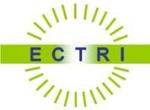The current literature on Universal Design does not respond well to the challenges transport agencies face in their work, and when planners lack comprehensive knowledge, the solutions may not hold a high enough standard.
Download the complete series (13 Mb)
Download individual chapters:
Chapter 1 Inclusive mobility
Chapter 2 Functional requirements for inclusive transport
Chapter 3 Universal design and barriers to using public transport
Chapter 4 Universal design and public participation in planning processes
Chapter 6 Effects of universal design: quality of life, demand and economic benefit
Chapter 7 Transport solutions of the future: technology, design and innovation
The collection of articles will contribute to increased overall knowledge about what Universal Design entails, as well as principles for how it can be achieved in a transport context, with regard to the planning process and physical solutions.
In this way, this series of articles contributes to strengthening the implementation of universal design as a quality of society, and in turn contribute to a better quality of life and equality for people with disabilities.
The target audience for the collection of articles includes:
- Students in colleges and universities and continuing education courses
- Planners
- Project managers and clients in transport agencies including consultants who perform assignments for them
In addition, the collection of articles will be relevant for other state, county and municipal employees who in various ways work with or encounter Universal Design in their everyday work.
Kjersti Visnes Øksenholt and Nils Fearnley are the editors of the collection of articles. Senior researcher Tanu Priya Uteng has quality assured the work, and Anja Fleten Nielsen has contributed to the initial surveys. All article contributions have been thoroughly «double blind» peer reviewed in line with scientific principles and maintain a high academic level.
The collection of articles is initiated and partly financed by the Norwegian Public Roads Administration. Bufdir has partly financed the collection of articles through the grant scheme "Universal design - knowledge development, competence enhancement and information".
We would like to thank the anonymous reviewers who have been responsible for peer review of all contributions. All the authors and editors agree that their close reading and thorough feedback has contributed to greatly improved articles.






